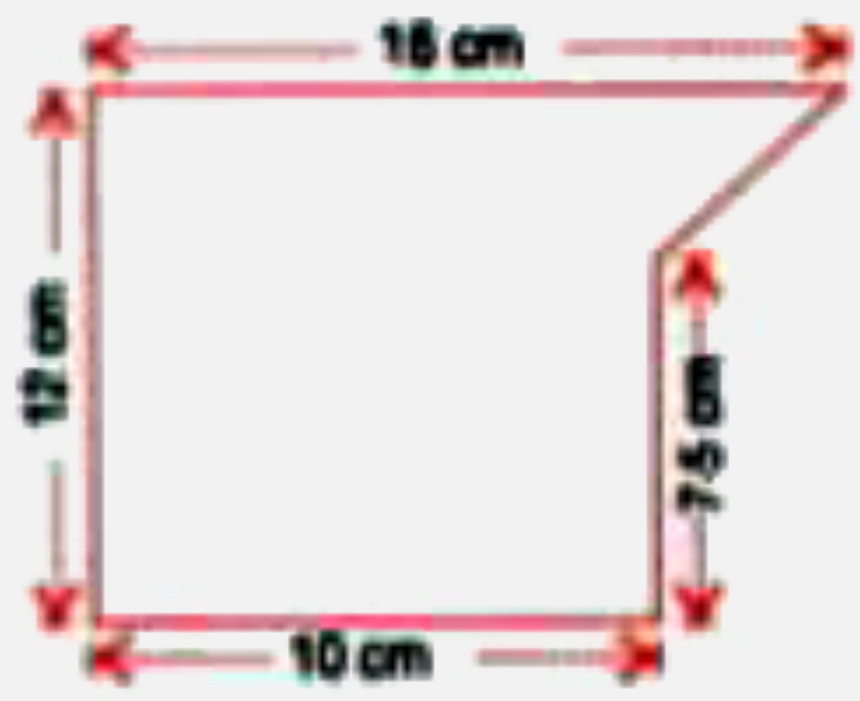A piece of stone of mass 15.1 g is first immersed in a liquid and it weighs 10.9 gf. Then on immersing the piece of stone in water, it weighs 9.7 gf. Calculate the weight of the piece of stone in air
The correct Answer is:a. 15.1 gf, b. 5.4cm3 (c) 2.8 d. 0.78
Step by step video, text & image solution for A piece of stone of mass 15.1 g is first immersed in a liquid and it weighs 10.9 gf. Then on immersing the piece of stone in water, it weighs 9.7 gf. Calculate the weight of the piece of stone in air by Physics experts to help you in doubts & scoring excellent marks in Class 9 exams.
Updated on:21/07/2023Topper's Solved these Questions
- UPTHRUST IN FLUIDS, ARCHIMEDES' PRINCIPLE AND FLOATATIONBOOK - ICSECHAPTER - UPTHRUST IN FLUIDS, ARCHIMEDES' PRINCIPLE AND FLOATATIONEXERCISE - EXERCISE 5(c)
26 Videos
- UPTHRUST IN FLUIDS, ARCHIMEDES' PRINCIPLE AND FLOATATIONBOOK - ICSECHAPTER - UPTHRUST IN FLUIDS, ARCHIMEDES' PRINCIPLE AND FLOATATIONEXERCISE - EXERCISE 5(c) (Multiple Choice Question)
3 Videos
- UPTHRUST IN FLUIDS, ARCHIMEDES' PRINCIPLE AND FLOATATIONBOOK - ICSECHAPTER - UPTHRUST IN FLUIDS, ARCHIMEDES' PRINCIPLE AND FLOATATIONEXERCISE - EXERCISE 5(B) (Multiple Choice Question)
3 Videos
- SOUNDBOOK - ICSECHAPTER - SOUNDEXERCISE - TOPIC 2 Infrasonic and Ultrasonic Waves ( 3 Marks Questions)
3 Videos
Similar Questions
A piece of stone of mass 15.1 g is first immersed in a liquid and it weighs 10.9 gf. Then on immersing the piece of stone in water, it weighs 9.7 gf. Calculate the volume of the piece of stone
View SolutionA piece of stone of mass 15.1 g is first immersed in a liquid and it weighs 10.9 gf. Then on immersing the piece of stone in water, it weighs 9.7 gf. Calculate the relative density of stone
View SolutionA piece of stone of mass 15.1 g is first immersed in a liquid and it weighs 10.9 gf. Then on immersing the piece of stone in water, it weighs 9.7 gf. Calculate the relative density of the liquid.
View SolutionA metallic bob weights 50g in air. If it is immersed in a liquid at a temperature of 25∘C, it weights 45g . When the temperature of the liquid is raised to 100∘C, it weights 45.1g. Calculate the coefficient of cubical expansion of the liquid. Given that coefficient of cubical expansion of the metal is 12×10−6.∘C−1.
View SolutionA metal piece weighs 200gf in air and 150 gf when completely immersed in water.
Calculate the relative density of the metal piece.
View SolutionA certain block weighs 15 N in air. But is weighs only 12 N when completely immersed in water. When immersed completely in another liquid, it weighs 13 N. Calculate the relative density of (i) the block and (ii) the liquid.
View SolutionThe cross-section of a piece of metal 4m in length is shown below. Calculate:

the volume of the piece of metal in cubic centimetres
If 1 cubic centimetre of the metal weights 6.6 g, calculate the weight of the piece of metal to the nearest kg.
View SolutionA solid weighs 120 gf in air and 105 gf when it is completely immersed in water. Calculate the relative density of solid.
View SolutionMass of a stone is 50g. When it is immersed in water the level rises from 45mL to 75mL. Determine the density of the stone.
View SolutionA body weighs W1 gf in air and when immersed in a liquid, it weighs W2 gf, while it weighs W3 gf on immersing it in water. Find (i) Volume of the body (ii) upthrust due to liquid (iii) relative density of the solid and (iv) relative density of the liqudi.
View Solution
